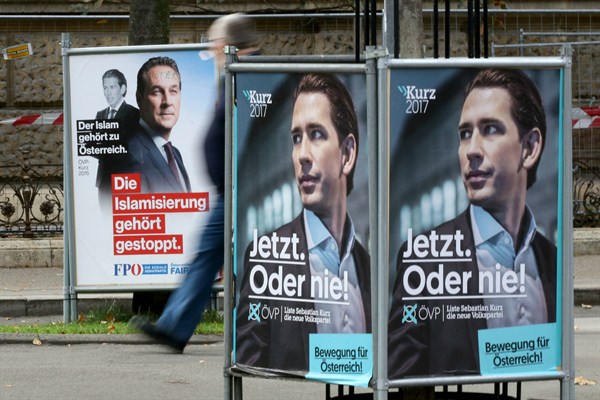On Oct. 15, Austrians will go to the polls to elect a new government, with all signs pointing to a rightward shift in its ruling coalition. Just two weeks before the parliamentary elections, the government put into force a new law that prohibits individuals from covering their faces in public—a not-so-subtle signal to right-wing voters of the government’s stance on Muslims and the full-body burqa and other coverings worn by some Muslim women. In an email interview, Stefan Lehne, a visiting scholar at Carnegie Europe and former director general of political affairs at the Austrian Ministry for European and International Affairs, explains what was behind the new law, how much resonance it will have among the voting public, and what it means for Austria’s acceptance of Muslims.
WPR: What are the origins of the “burqa ban” in Austria and how prevalent are such face coverings?
Stefan Lehne: Austria’s “Anti-Face-Veiling Act” entered into force on Oct. 1. Accordingly, in public places and buildings it is no longer allowed for people to cover facial features in such a way that they are no longer recognizable. If the person concerned refuses to uncover his or her face when asked by the police, he or she faces a penalty of up to 150 euros.

